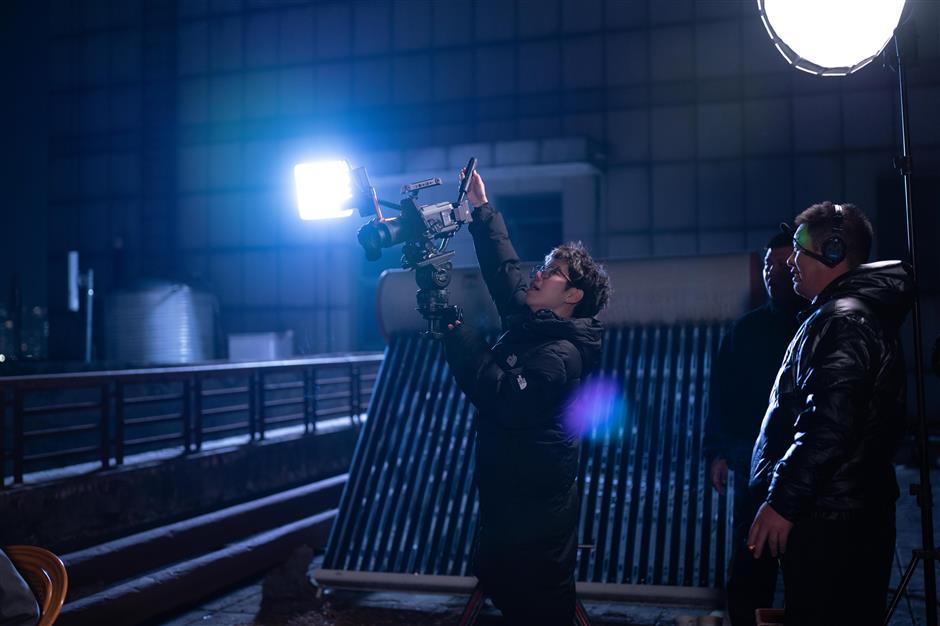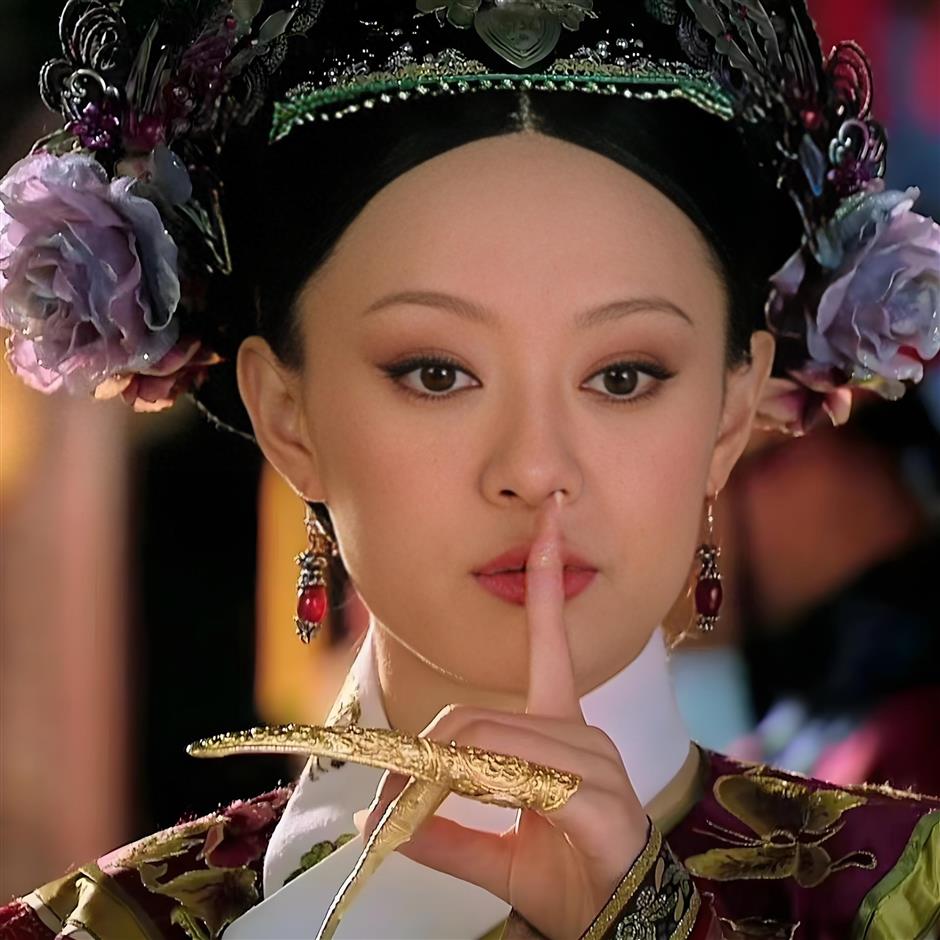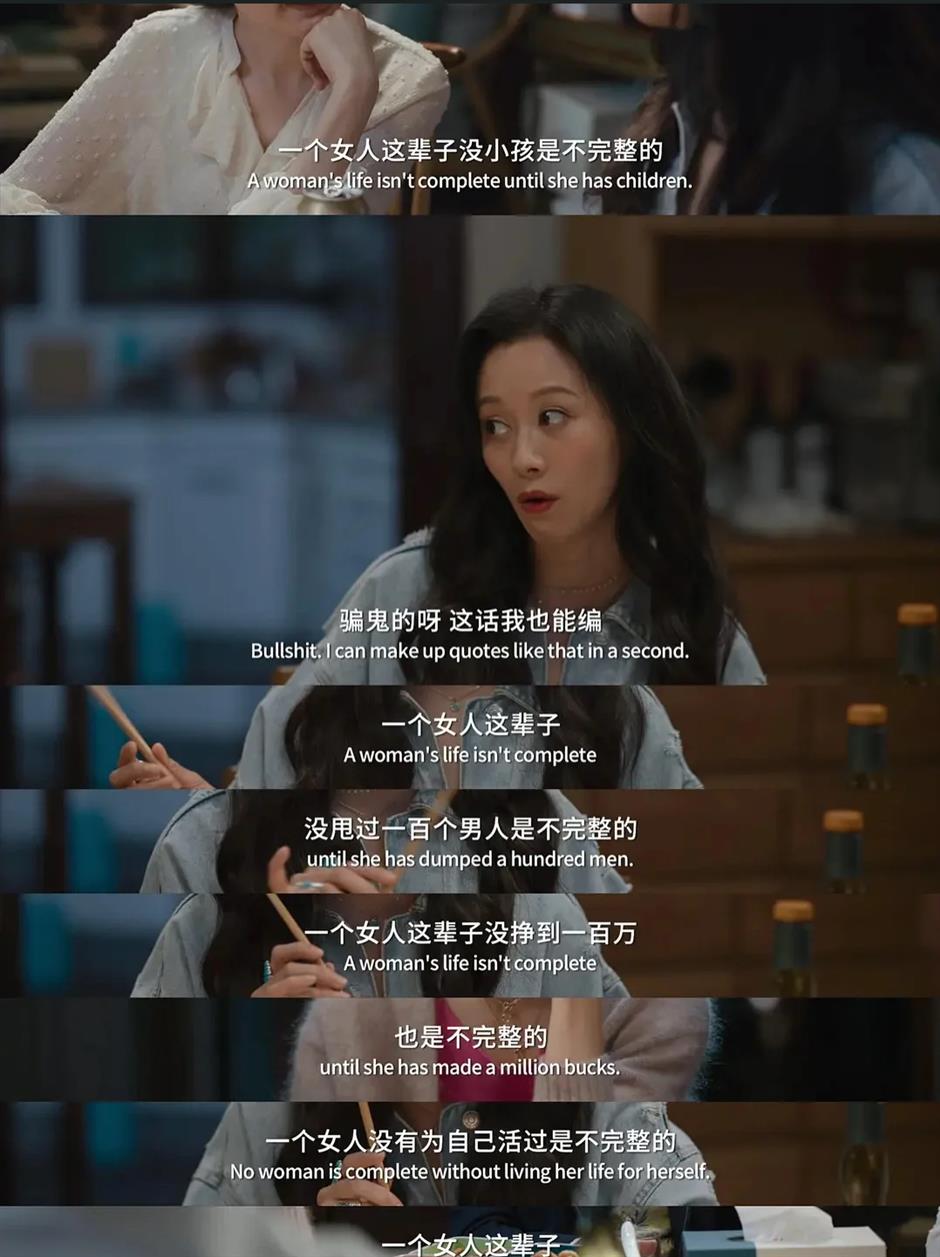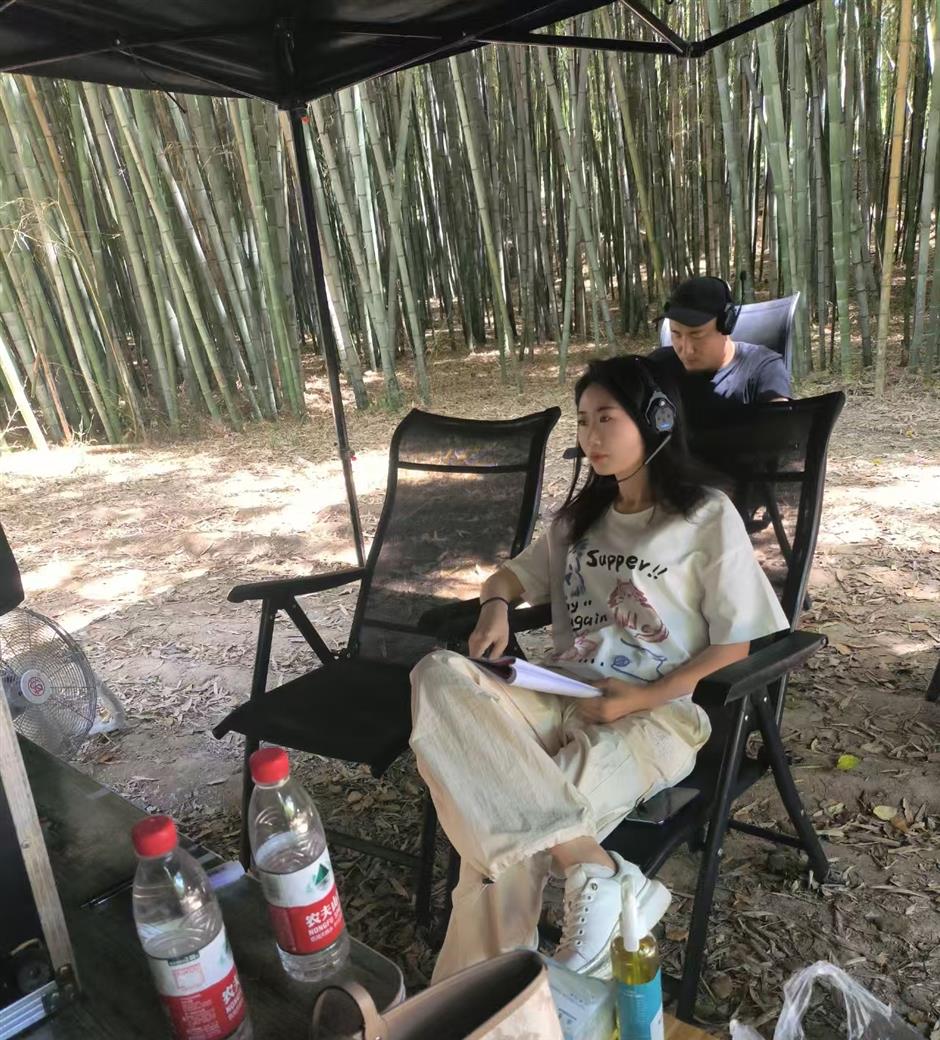

Director Jin Huai (left) works on a micro-drama.
Jin Huai sat in front of a vertical screen and called out, "Cut." At just 30 years old, she has already directed 17 micro-dramas, one of which has received over 100 million online views.
In the traditional film and television industry, such numbers would be nearly unattainable for a young woman like Jin. However, in the rapidly expanding world of micro-dramas – short episodes filmed vertically – she and other young women are discovering opportunities rarely found in traditional productions.
Fresh paths for young creators
Jin directed her first micro-drama in 2023. She began her career as an assistant director on TV shows, where she managed transportation and makeup scheduling, after graduating from Renmin University of China with a degree in digital cinema and television.
During the pandemic, film and TV production experienced a significant decline. Traditional dramas faced challenges in profitability, while micro-dramas gained traction across China. These vertically filmed programs usually consist of 60 to 80 episodes, each lasting 1.5 to 2 minutes, and employ garish, melodramatic narratives to capture viewers' attention.
Jin explored this new format but found one of her early scripts perplexing: When the lead character is bullied, a crowd suddenly appears and refers to him as "young master."
"Looking back, it still feels ridiculous," she remarked. "That would never happen in real life."
This script crafted for male-centric genres typically features storylines like "loser-turned-mogul" or "hidden God of War." As China News Weekly notes, male-focused narratives dominated the early days of micro-dramas.
However, in late 2022, Cinderella-themed micro-dramas targeting female audiences began to rise in popularity. The micro-drama media outlet DataEye reported that by 2024, China was producing over 30,000 micro-dramas each year, with 61 percent aimed at women.

The viral micro-drama "Save Myself" gets 1 billion views within 10 days of its February release.
The average production takes one to two months and costs 500,000 to 1 million yuan (US$70,000-140,000), substantially less than traditional productions.
The massive market demand and low costs have flattened the competitive landscape in the industry.
"While some implicit barriers remain, the micro-drama industry is moving much faster in breaking gender biases," said Zhang Chi, a Los Angeles-based producer.
Zhang worked in post-production on Hollywood blockbusters like "Dune" and "Godzilla vs Kong" at Legendary Entertainment. She later shifted to micro-dramas and has produced several projects since.
She told Shanghai Daily that traditional sets rarely provided equal opportunities for women, especially in production roles. They were frequently viewed as not tough enough to lead.
However, with the rise of micro-dramas, she has noticed a substantial increase in female participation, particularly in areas such as screenplay writing, directing and executive producing. In some crews, female creators account for more than half the team.
"If you're capable, decisive and resilient, the team will respect you, and platforms will trust you," she said.
Jin echoed: "Traditional productions are huge and cost hundreds of millions of yuan. How could you ever get the chance to lead one?" she said.
"Now, the competition is more equal. If you have the skills, you can do it."
New heroines, new rules
Growing up during a period of rapid economic change and rising feminist influence in China, women now have more career options and enjoy greater financial independence, reflected in the stronger voices of female characters on screen.
Around 2010, dramas began to focus on strong female leads, moving away from earlier portrayals of women as dutiful wives and mothers framed through a male perspective.

"Empresses in the Palace" features Zhen Huan who transforms from a hopeful concubine to a shrewd power player, ultimately becoming the Empress Dowager.
A landmark example is the 2011 TV drama "Empresses in the Palace." The lead, Zhen Huan, starts as one of the emperor's many concubines. After being framed, she concentrates on palace politics, skillfully navigating her path to ultimate power through the emperor's assassination. The show remains extremely popular today, not as a romance, but as a masterclass on career strategy.
"The audience has changed. Women's purchasing power is finally being recognized, so it's only natural that content shifts to reflect their perspectives and needs," Zhang said.
This shift has highlighted the strengths of female creators, who tend to better understand female audiences.
Jin noted that female directors are also more protective of actresses and won't ask them to pose submissively on a bed just to please male viewers. "That empowers creativity," Jin said.
The market confirms this advantage. DataEye reports that women have directed several recent hit micro-dramas with over 1 billion views.

In "B for Busy," a female character refutes the notion that "a woman's life is incomplete until she has children."
Women are making their mark in cinemas, too. One example is the 2021 film "B for Busy," which proudly proclaimed, "No woman is complete without living her life for herself."
Another is last year's surprise hit, "Like a Rolling Stone." Based on a true story, it follows a woman in her 50s who escapes domestic abuse and becomes a travel influencer with millions of followers. The film earned 124 million yuan.
Film school, 2 minutes at a time
Long-form series or films are the ultimate goal for many micro-drama artists. "We all want to create works with lasting impact," Jin said.
Micro-dramas are ideal training ground. They teach creators how to manage production teams, arrange complex scenes, and write captivating stories under budget and scheduling constraints.
Wang Yijie, born in 1998, has directed over 30 micro-dramas and founded her own production company in 2021.
She explained that nearly every script features multiple banquet scenes, which serve as a hotbed for dramatic conflict. Coordinating the movement and tension among so many characters while maintaining audience engagement presents a significant challenge for any young director.

Wang Yijie believes micro-dramas have opened up more opportunities not only for women but also for young people under 30.
Jin compares micro-dramas to a hands-on directing class at film school. With much shorter production cycles than traditional projects, directors can experiment with various characters and storytelling techniques in a limited timeframe.
"Where else can you get that kind of practice? When it comes to building a fully rounded character, you'll already have a wealth of experience to draw from," she said.
She also mentioned that the genre's departure from realism provides creators with more freedom than traditional television. For instance, in micro-dramas, she could film a scene where the female lead enters, and all the villains immediately turn to look at her, reminiscent of the Oscar-winning film "Parasite."
This creative potential gained further recognition this year when the lifestyle platform Xiaohongshu (RedNote) partnered with FIRST, a prominent indie film festival and incubator in China, to launch a funding initiative for micro-dramas. The program offers production grants and guarantees exposure to tens of millions of users.
Director Shao Yihui for "B for Busy" was one of FIRST's earlier discoveries. The collaboration has sparked widespread discussion about the "cinematization" of micro-dramas.
Ambition vs cliches
So, can these creators ever create something as profound and impactful as a short-form adaptation of "Parasite" or "The Handmaid's Tale?"
"Not yet," Jin replied, because this format doesn't leave enough time to create a world like Gilead.
Also, audience is not ready. Most viewers want instant gratification; therefore, a show must grab their attention in the first 30 seconds. This is often at the expense of story development and logic.
Wang recalled a chat she had with a screenwriter: "Why do eight out of 10 female-oriented micro-dramas start with a one-night stand?"
"This shortcut launches a quick emotional connection between the leads and sets the story in motion," the screenwriter explained.
Some creators said they try to resist this tendency by refusing to copy narratives and adding more emotional depth and rationale whenever possible.
However, their challenges extend beyond micro-dramas. The genre evolved from web novels and in-feed advertisements, which had similar themes and character clichés.
Web fiction, especially screenplays, often has to match public expectations, Tsinghua University lecturer Xue Jing said in a podcast. For example, female characters rarely make major mistakes and resolve every crisis on their own, almost like textbook examples.
"Throughout the history of literature and film, truly compelling characters are those who connect with real people," Xue added. "That connection usually doesn't come from moments of triumph, but from shared struggles, setbacks and detours."
Director Wang noted that viewers aren't always receptive to serious micro-plays.
She gave an example: "Save Myself" racked up 1 billion views within 10 days of its February release. The story revolves around a woman who transforms from a submissive "tool" to an independent person on a journey of self-discovery.
In the final scene, the subtitle reads, "Save yourself from the adversity of this world. May every girl embrace happiness confidently." While this resonated with many viewers, it also elicited some criticism.
"Some people said, 'Why are you preaching in an electronic pickle?'" Wang said about the slang term for simple, low-effort entertainment.
"People watch micro-dramas mainly for fun," Jin said. "If they want something serious, they turn to mainstream film and TV."
Most of Jin's classmates never worked in the film industry. She described her motivation as genuine passion.
"I enjoy it. Meeting new people and telling stories never gets tiring for me," she remarked. "And if the script is good, it feels satisfying."

The closing subtitle of "Save Myself" read: "Save yourself from the adversity of this world. May every girl embrace happiness confidently."

